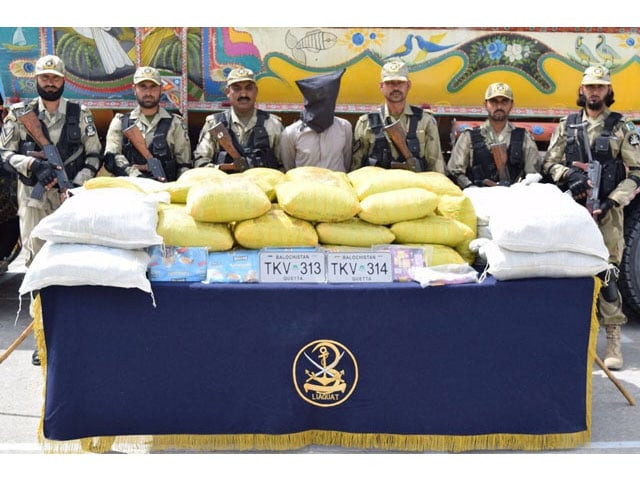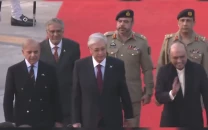Narcotics proceeds used in anti-state activities: SC
Order says immediate steps required to curb nefarious acts

The Supreme Court has noted that proceeds of narcotics are largely utilised in anti-state/terrorist activities, which this country is facing for decades.
"It is very disheartening to observe that every day there are many reports of drug peddlers being caught with drugs. This menace is a great threat to a peaceful society and is affecting many lives especially the youngsters, therefore, immediate steps are required to be taken to curb these nefarious activities," a seven-page judgment authored by Justice Syed Mazahar Ali Akbar said while rejecting a jail petition of an individual who is facing life imprisonment in narcotics case.
A three-judge bench led by Justice Sardar Tariq Masood noted that it was a case which was lodged with promptitude on the basis of spy information, which was supplied to the law enforcing agency prior to conducting a raid by the raiding party comprising a number of police officials and it had already established a picket at the particular place on the basis of the said information.
"The petitioner was caught red-handed by the police and a huge quantity of 10 kilogrammes of contraband charas and five kilogrammes of opium was recovered from him, which was contained in a sack/gatoo in 15 separate packets.”
The order noted that this court in a number of judgments has held that testimony of police officials is as good as any other private witness unless it is proved that they have animus against the accused. However, no such thing could be brought on record by the petitioner in this case.
"This court has time and again held that reluctance of general public to become witness in such cases has become a judicially recognised fact and there is no way out to consider statement of official witnesses, as no legal bar or restriction has been imposed in such regard.
"Police officials are as good witnesses and could be relied upon, if their testimonies remain un-shattered during cross-examination. The police officials separated 10 grammes of charas and 10 grammes of opium from each packet in a prescribed manner and put the samples in 15 separate packets and then sent the same to the office of chemical examiner for its analysis.
"The reports of the chemical examiner show that all the 15 packets contain contraband charas and opium.”
The court also said that the Control of Narcotic Substances (Government Analysts) Rules, 2001, cannot control the substantive provisions of the Control of Narcotic Substances Act, 1997 and cannot in any manner frustrate the salient features of the prosecution case, which otherwise hinges upon (i) receipt of information, (ii) action by the concerned law enforcing agency, (iii) recovery of contraband narcotics, (iv) the report of chemical examiner regarding analysis of the recovered contraband, (v) the finding of fact by the courts below after recording of evidence ie (a) witnesses of the raiding party, (b) the recovery witnesses, (c) investigating officer and all other attending circumstances.
If the series of acts which ultimately resulted into recovery of contraband narcotic are kept in juxtaposition with the alleged violation of the rules, it cannot by any stretch of imagination be considered reasonable in law to smash the whole prosecution case on its salient features.
Even otherwise, in terms of Section 29 of the Control of Narcotic Substances Act, 1997, manner and standard of proof in cases registered under the act is slightly different as in terms of the said act the accused is presumed to have committed the offence unless the contrary is proved.
The court also noted that in the said Zulfiqar supra case, 15 kgs of poast/opium was recovered from the accused and nothing was brought on record as to whether it was only the doda/basket/pouch or was it the whole poppy plant. This court while holding that it is only the basket/sack/pouch also known as “doda” excluding the seed, which contains narcotics, considered it as a mitigating circumstance and reduced the quantum of punishment.
The court, however, noted that in the present case a huge quantity of 10 kgs of contraband charas and five kgs of opium was recovered in pure form from the possession of the petitioner. “Even if we keep aside the recovery of five kgs of opium for the reason that it is unknown as to in which shape the opium was recovered, even then the recovery of 10 kgs of contraband charas alone is sufficient to sustain the conviction of the petitioner," the order said.



















COMMENTS
Comments are moderated and generally will be posted if they are on-topic and not abusive.
For more information, please see our Comments FAQ